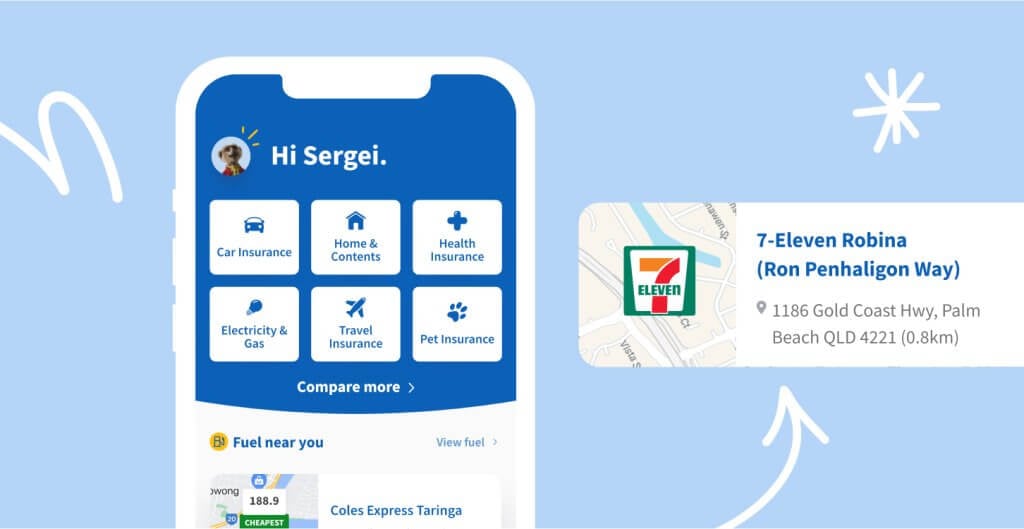It’s simple! With our Simples app (available on iPhone and Android), you can compare petrol prices at fuel stations near you by entering your postcode or location and the type of fuel you’re looking for. We’ll then display some fuel prices near you, and you can compare which option is best for you. You’ll also see the address of each service station, which makes it easy to track down a deal.

By checking and using the app often, you could really start to save on your fuel bill over time.
We update this information regularly for the following areas in Australia:
- Sydney, New South Wales
- Melbourne, Victoria*
- Brisbane, Gold Coast and Sunshine Coast, Queensland
- Hobart, Tasmania
- Adelaide, South Australia
- Canberra, ACT
- Darwin, Northern Territory
- Perth, Western Australia.
See the Terms and Conditions.
*In Victoria, there is no requirement for fuel stations to report their pricing data. This impacts the accuracy of the information we can provide you through our app. Pricing information in Victoria is a guide only, so you may notice discrepancies occasionally.



